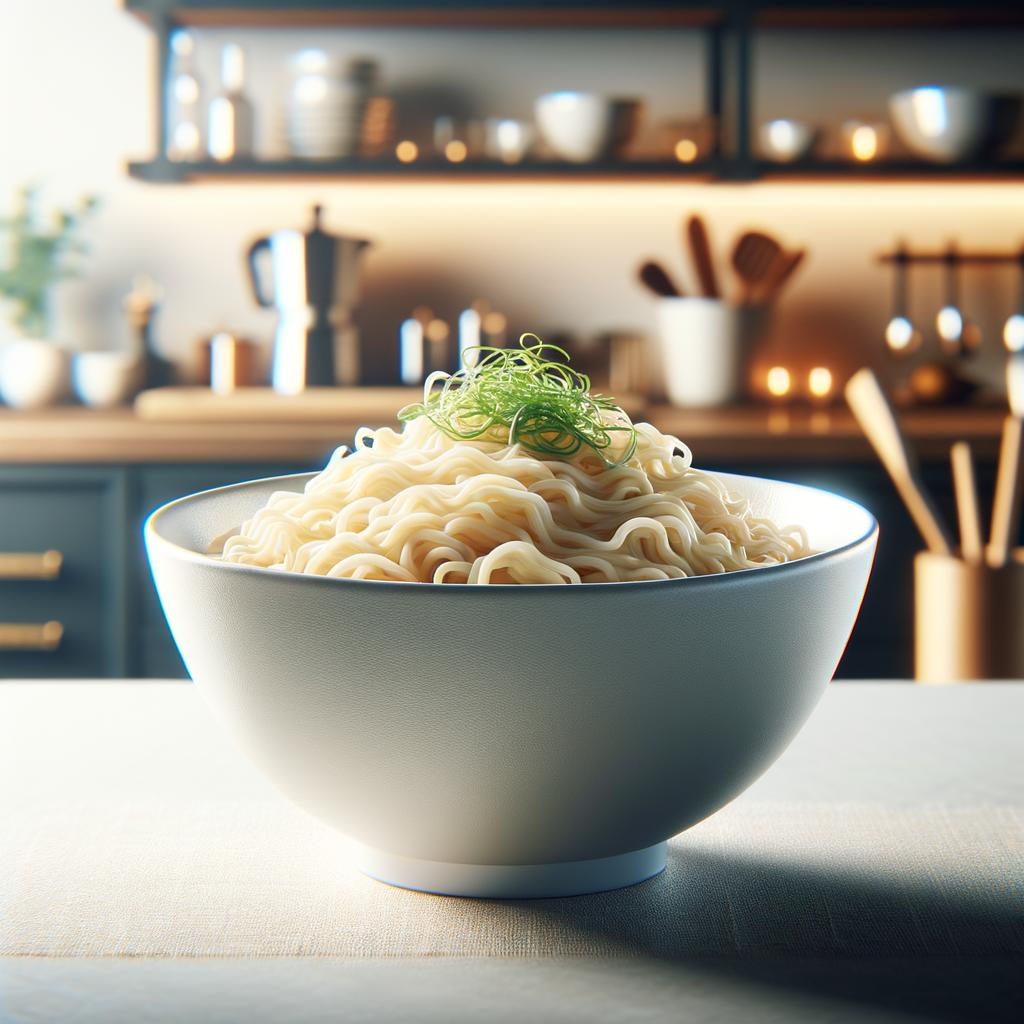Ramen Noodles

Description
Ramen noodles, a staple of Japanese cuisine, are thin, long, and slightly curly pasta that are known for their distinctive chewy texture and neutral taste. These noodles have a pale, creamy yellow hue, often attributed to the kansui or alkaline water used in their production. This unique ingredient gives ramen noodles their signature springiness, setting them apart from their Italian pasta or Chinese noodle counterparts.
Primary Uses
Ramen noodles are the star of the show in Ramen dishes, a beloved comfort food not only in Japan but worldwide. The noodles are served in a rich, flavorful broth, accompanied by various toppings such as slices of pork, green onions, seaweed, and a soft-boiled egg. They are also a popular choice for stir-fries and noodle salads. Beyond their culinary uses, ramen noodles hold significant cultural value in Japan, representing sustenance, comfort, and the art of culinary simplicity.
History
The history of ramen noodles is as rich and complex as the broth in which they're often served. While they're a staple in Japanese cuisine today, their origins can be traced back to China. They were brought to Japan by Chinese immigrants in the late 19th century. Initially, ramen was a dish enjoyed by the working class, but with time, it gained popularity across all social strata. During the post-World War II era, instant ramen was invented, revolutionizing the food industry and becoming a symbol of modern convenience. There are countless regional variations of ramen in Japan, each with its own unique story.
Nutritional Information
Ramen noodles are a good source of carbohydrates, providing the energy you need to get through the day. They also contain small amounts of protein and fiber. However, they are often low in vitamins and minerals, and when served in instant ramen form, they can be high in sodium and unhealthy fats. Compared to whole grain noodles, ramen noodles have a less impressive nutritional profile. But when served in a balanced dish with plenty of vegetables and lean proteins, ramen can certainly be part of a healthy diet. As with any food, the key is moderation and balance.

